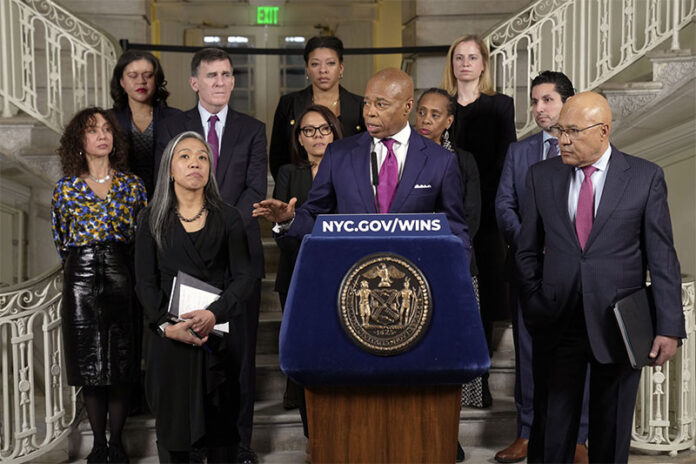The budget for fiscal year 2026 will be $254 billion, finalised by New York State lawmakers. The package was passed past the official deadline and more than four weeks after it had been agreed by the EU. Even with delays, the agreement has strong MTA provisions, as the system is the largest in the country.
Payroll Mobility Tax Adjustment for MTA Capital Plan
The MTA funding plan contains a major component that involves changes to the Payroll Mobility Tax (PMT). In New York City and suburban areas, where the tax currently stands at 0.6%, it will modestly be hiked for large employers. To some extent, she said small businesses will see their tax burden halved, but large corporations that rely on employees to heavily on mass transit but will pay more.
The idea is to target financially aiding small businesses while backing continued public infrastructure investment.
$68 Billion MTA Capital Plan
The money will help finance the MTA’s new five-year, $68 billion capital plan. Maintaining and upgrading transit infrastructure is critical, and this is a program that is needed. It looks at projects like new subway signals, station improvements to make the station accessible, and the proposed Interborough Express — a light rail line between Brooklyn and Queens.
In addition, $ 1.2 million of that already redirected to Penn Station municipality money will be returned to the capital plan, as the federal government takes the lead on that project.
Contributions from Multiple Stakeholders
Governor Hochul pointed out that financing the MTA capital plan will be a shared responsibility. The program will be funded by the city, state, and the MTA itself. Under the Trump administration, looming federal funding uncertainties make it essential for this collaborative effort.
Also read: Pittsburgh Storm Shuts Schools After Destructive Winds
Support from Transit Advocates
The funding plan has been supported by strong voices of transit advocates. The deal was praised by liberal organizations such as the Riders Alliance and the Permanent Citizens Advisory Committee to the MTA for being a win for New York. The MTA will incorporate safety and accessibility improvements in hopes of increasing ridership, which in turn will increase the entire system’s reliability, they said.
Danny Pearlstein of the Riders Alliance noted that any future with dependable transit depends on the capital program. The man was quoted more saying, ‘When public transit riders organize, we win.’
Economic and Social Impact
This is expected to provide both economic and social benefits. Permanent Citizens Advisory Committee member Lisa Daglian reminded that the regional economy needs a safe, reliable transit system. The investment will increase transit access for more people, especially those living in underserved neighborhoods.It also reinforces transportation links across the city and furthers the ability of people to obtain jobs, get to work more quickly, and live more sustainably with less need for personal vehicles for the use.
Industry Response
The funding plan was also welcomed by construction industry leaders. Carlo Scissura, CEO of the New York Building Congress, noted that the capital plan is consistent with the companies’ lobbying on this issue. That was an investment in “a future-proof, modernized, safer, faster, more accessible transit system,” he told reporters.
The sentiment of this underscores that public infrastructure investment is how it helps in economic development and provides job opportunities, especially in the construction sector.
Final Steps in Budget Approval
The budget agreement was reached, but lawmakers will continue to vote on other bills the coming days. Although there are some final details left to be determined, this framework is very evident in terms of the state’s commitment to transit funding and economic equity.








